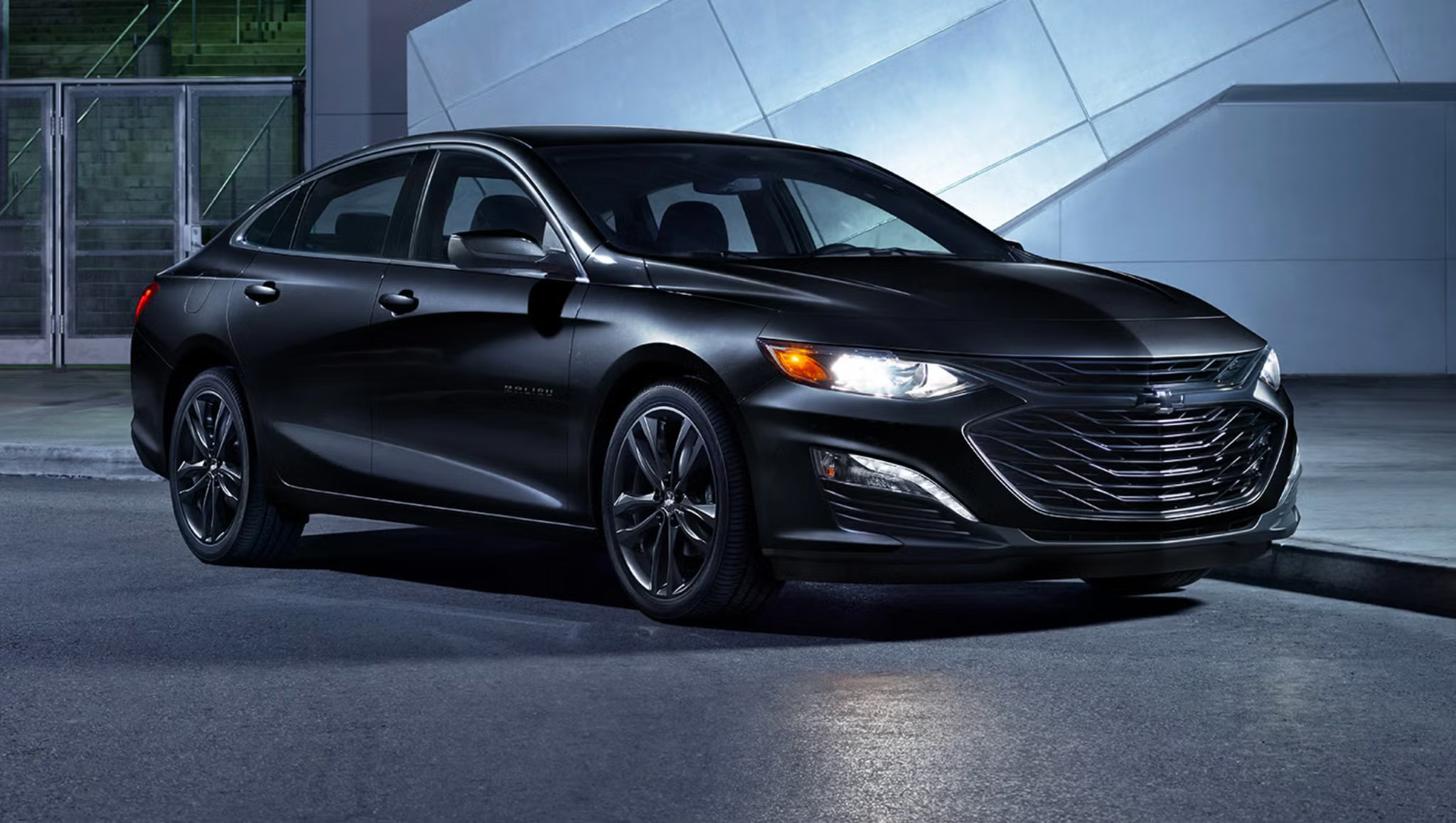Many qualities can make a car attractive. However, if your car breaks down, its eye-catching design, abundance of features, roomy cabin, agile performance, smooth ride, or affordable price may quickly lose their appeal.
If you’re looking for the highest level of confidence in choosing trouble-free transportation, consider one of these most reliable sedans.
Our list includes options spanning a range of sizes and price points, each earning strong ratings in third-party reliability studies. We’ve arranged them in order of base price. Click through to discover the best fit for your needs.
Reliable Sedans You Can Trust
When it comes to buying a car, reliability is often at the top of the list for many buyers. After all, you want a vehicle that will serve you well over the years, without constant trips to the mechanic.
Sedans, with their efficient design, smooth rides, and comfortable interiors, have long been popular choices for daily commuters, families, and anyone in need of a dependable vehicle.
In this article, we’ll explore some of the most reliable sedans on the market today—cars you can trust to deliver exceptional performance, longevity, and low maintenance costs.
Whether you’re after a budget-friendly option or something with a bit more luxury, these sedans are sure to meet your needs and exceed your expectations.
Also Read: Top 10 Budget-Friendly & Luxury Trucks You Can Buy
Honda Clarity PHEV
The 2020 Honda Clarity PHEV is another distinctive yet dependable mid-size sedan though it’s quite different from the sporty and upscale Mazda6.
This Honda stands out as a futuristic plug-in hybrid, capable of traveling up to 47 miles solely on electric power from the grid, with a 42-mpg gasoline engine ready to take over once the battery runs low.
With a spacious and well-crafted interior, the Clarity serves as both a practical family car and an environmentally conscious style statement.
While its infotainment system is cumbersome and the handling isn’t as lively as some other Hondas, it remains a strong choice in the mid-size sedan segment even without factoring in its electric range.
Its base price is a lofty $33,400, but that’s offset by a $7,500 federal tax credit and the savings you’ll see at the pump.
The Honda Clarity Plug-in Hybrid, a four-door car that’s been around for a few years now, is currently parked in my driveway.
With the electric half of its two-motor powertrain charging up for the day, I find myself contemplating whether I should aim to get through my week relying entirely on its 181-horsepower electric motor (which also generates 232 lb.-ft. of torque).
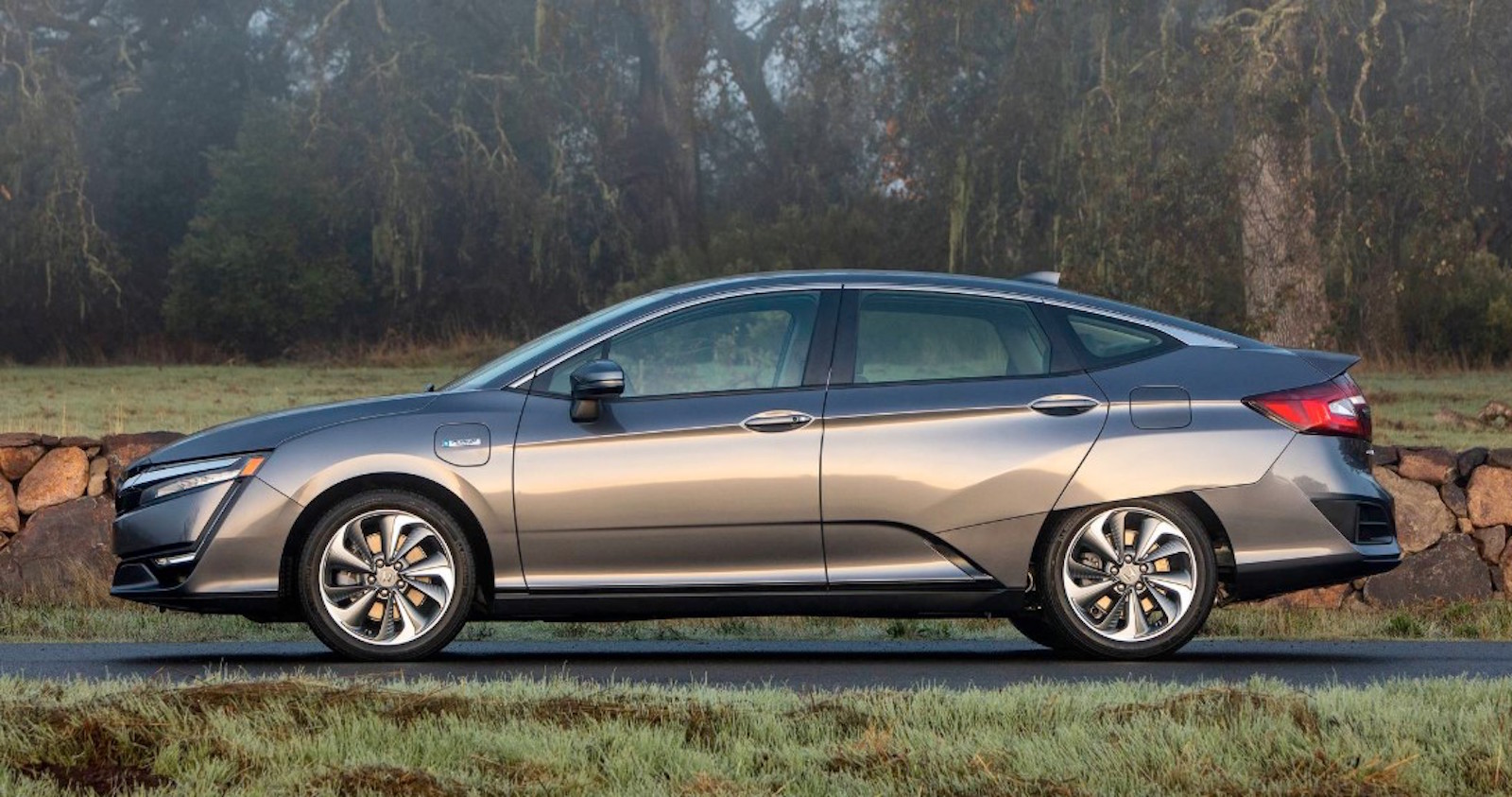
The car boasts a claimed range of 76 kilometers, though I’ve never seen a full charge reading exceed 68 kilometers.
Alternatively, I could drain the electric motor and let the 1.5-liter gas engine kick in for assistance. After a few days of enjoying the electric-only mode, I ultimately chose the latter.
Similar to Chevy’s now-discontinued Volt, the front-wheel-drive Clarity Plug-in Hybrid uses its 103-horsepower Atkinson cycle four-cylinder to generate electricity, and under certain circumstances, to directly power the vehicle.
In essence, it operates as a serial hybrid, where the engine drives a generator that creates the electricity needed to charge the batteries for the electric motor.
This means, unlike with pure electric vehicles, range anxiety is never a concern with the Honda. While the gas engine isn’t overly intrusive or noisy, I still prefer the serene operation of a fully charged battery. It simply feels cleaner, for lack of a better word.
Interestingly, the combined power of the Clarity Plug-in Hybrid’s powertrain is 212 horsepower, which is the same as the Accord Hybrid, which also uses a 181-horsepower electric motor.
However, the Accord relies on a 2.0L four-cylinder engine (producing 143 horsepower) for its primary power source. Performance isn’t the reason anyone would buy either car, but the Clarity is certainly no slouch.
It can accelerate from 0 to 100 km/h in just under eight seconds (about a second slower than the Accord Hybrid). There’s plenty of power to merge onto the highway, but acceleration noticeably drops off after around 115 km/h.
Toyota Avalon
While the 2020 Toyota Camry holds the title of America’s best-selling sedan and is among the most dependable options on the market, we’ve chosen to highlight Toyota’s top-tier sedan instead the full-size 2020 Toyota Avalon, which actually surpasses the Camry in reliability ratings.
The Avalon’s upscale starting price of $35,875 might give some shoppers second thoughts, but it still costs several thousand dollars less than its luxury-branded counterpart, the Lexus ES.
It’s also only about $1,500 more than a similarly equipped Camry V6. The Avalon stands out with more personality than the Camry a significant departure from the soft, uninspiring rides that defined earlier Avalon models along with a roomier interior and a longer list of available amenities.
Featuring a robust engine and handling that complements its bold design, this large sedan is engineered not just for longevity, but also for driving enjoyment.
For those who prioritize comfort and efficiency over sporty dynamics, the Avalon Hybrid is a great alternative, boasting an impressive EPA-estimated 44 mpg in combined driving.
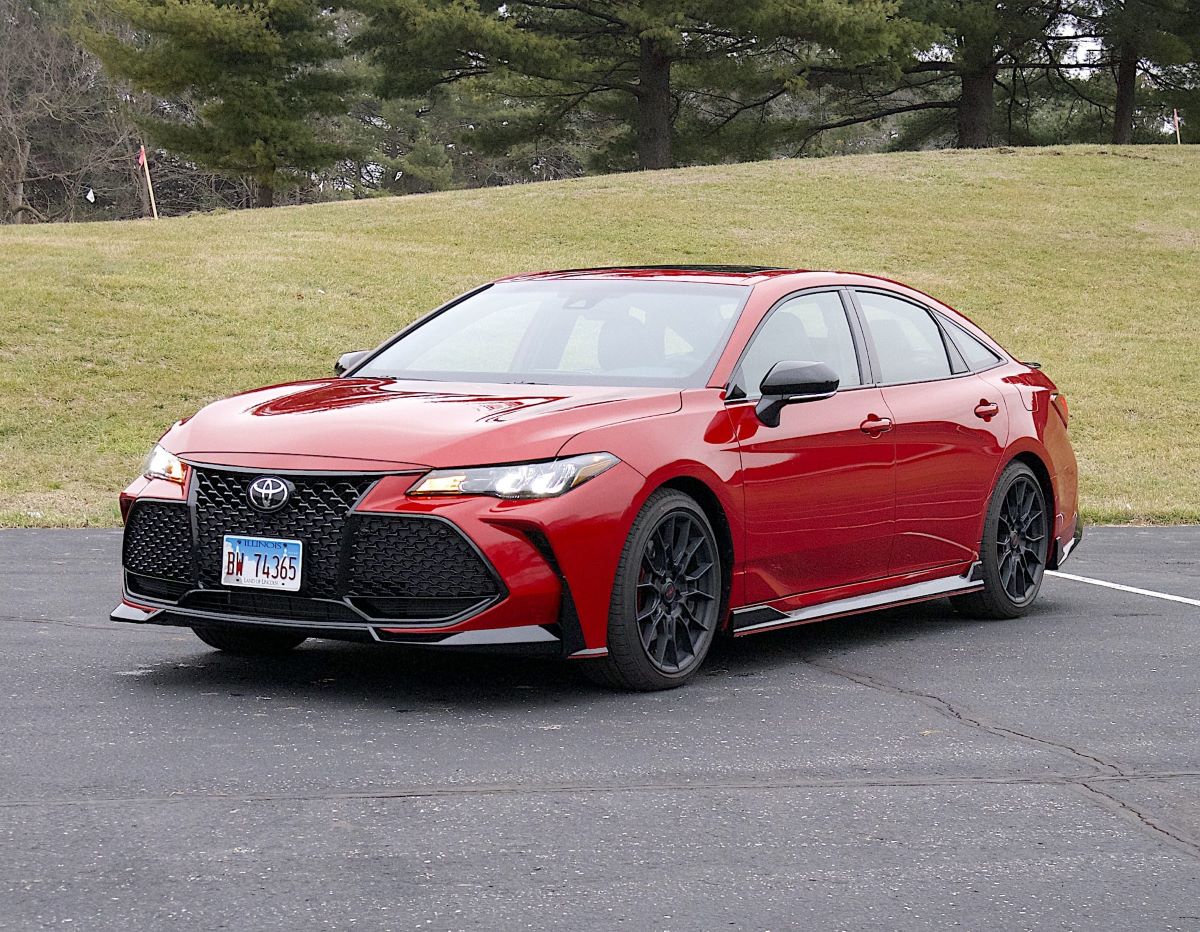
The Toyota Avalon serves as the brand’s flagship sedan in the United States, representing the peak of what the Japanese automaker offers in terms of traditional performance and modest luxury.
In the past, the Avalon lacked an all-wheel drive option, which allowed competitors like the Chrysler 300 and Dodge Charger to gain favor among buyers.
To meet demand, Toyota introduced all-wheel drive for its XLE and Limited trims last year, offering a 2.5-liter four-cylinder engine with an eight-speed automatic transmission paired with an AWD setup. However, this option has since been discontinued.
The Avalon continues to feature the familiar 3.5-liter DOHC V6 engine paired with an eight-speed automatic transmission, and a hybrid powertrain is available in a choice of three trims, which we review separately.
While the Avalon’s sporty design may give the impression of a more dynamic car, its driving character remains rather conventional. Nonetheless, the Avalon is more appealing than ever, delivering a serene ride, spacious interior, and an impressive range of comforts and conveniences.
The Avalon lineup is priced higher than many of its competitors in the same category. The base XLE model, equipped with the V6 engine, starts at $36,275. The XLE Hybrid is priced slightly higher at $37,250. The XSE Hybrid Nightshade Edition, with its distinct aesthetic and additional features, is priced at $40,600.
The V6 Limited model, which offers more luxury, comes with a price tag of $42,575, while the Hybrid variant of the Limited trim is priced at $43,550. The Touring V6 model is listed at $42,975. All prices exclude U.S. tax, registration, licensing fees, and a $1,025 delivery, processing, and handling fee.
The Avalon offers two distinct driving experiences: casual and luxurious. The majority of the lineup provides relaxed, casual driving, while the Touring trim is equipped with an adaptive variable suspension for a more refined ride quality.
When compared to some of its rivals, such as the Dodge Charger and Kia Stinger, the Avalon’s performance and handling aren’t as impressive, but it is still more engaging than the Volkswagen Arteon.
The Avalon excels in its ride quality, offering a plush and smooth experience even over bumpy surfaces. The steering is direct when centered, but it becomes less responsive off-center. While the Avalon can feel heavy and large at times, this sensation diminishes at higher speeds.
If you’re in need of a spacious, premium family car at a reasonable price and aren’t interested in joining the SUV crossover trend, the Avalon is a strong contender. With a variety of trim options available, it can cater to different preferences, whether you lean toward something sportier, more luxurious, or a mix of both.
The Avalon is visually appealing and offers a pleasant driving experience. However, it is clear that its design prioritizes comfort over performance, with a focus on a smooth ride rather than agile acceleration or handling at the limits.
That being said, the Avalon’s good fuel economy, along with the availability of a hybrid option for those seeking to save at the pump, makes it a solid choice. The Avalon is equipped with a comprehensive array of comforts, conveniences, and safety features, making it an excellent family sedan for daily use.
Over the years, Toyota has made significant improvements to the Avalon, including the addition of Android Auto last year. The availability of a highly efficient hybrid version only enhances its overall appeal.
Genesis G70
When it comes to luxury-branded vehicles, the 2020 Genesis G70 stands out as one of the most reliable sedans available.
Genesis, Hyundai’s recently launched premium division, shares the parent brand’s commitment to reliability and backs it up with exceptionally generous warranty coverage.
This includes 10 years or 100,000 miles for the engine and transmission, along with five years or 60,000 miles for the rest of the vehicle a major advantage for a luxury sedan, where repair costs for advanced components can be high.
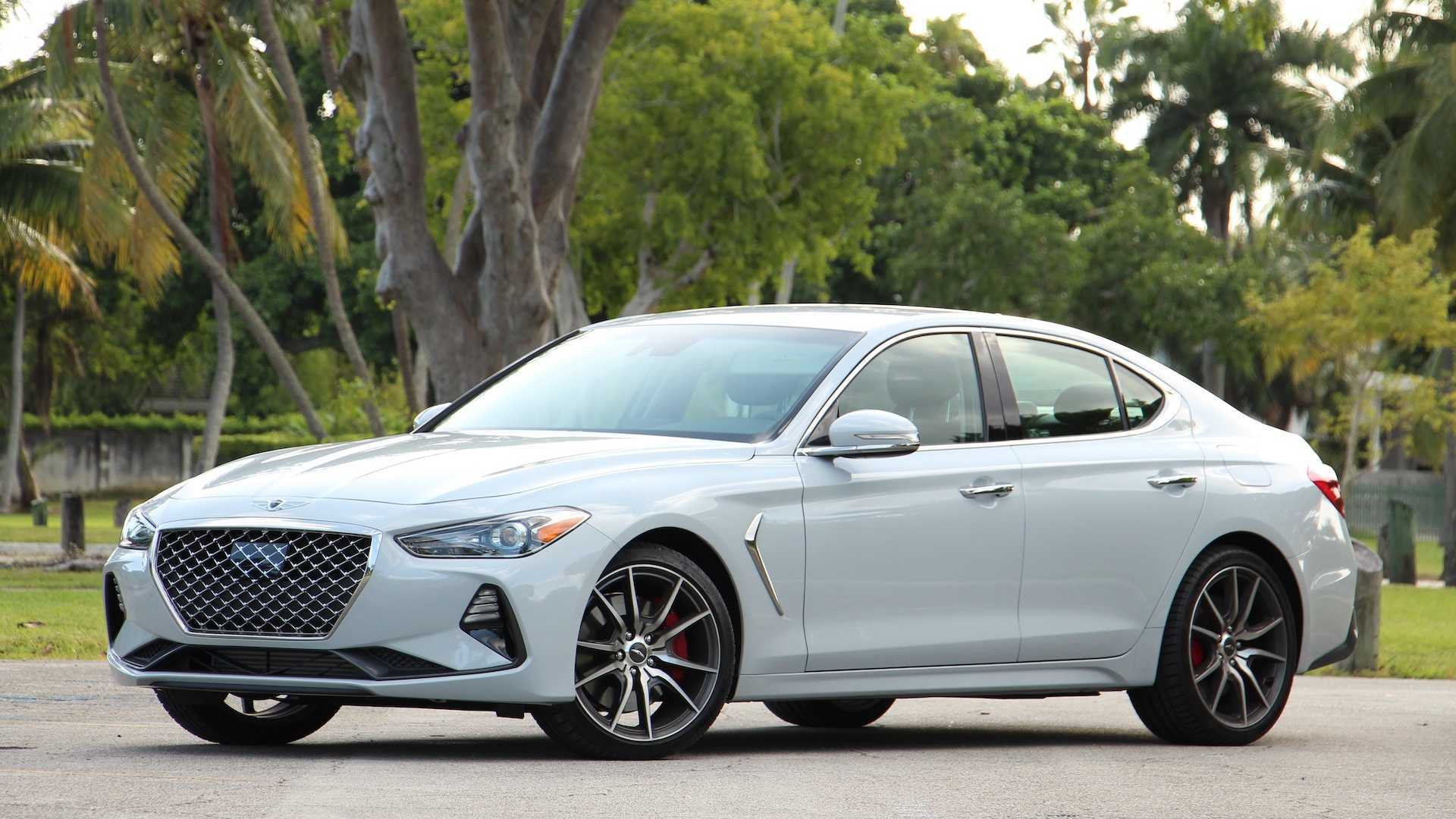
But the G70 isn’t solely about dependability. This rear-wheel-drive compact sports sedan delivers an award-winning combination of precise handling and a refined ride.
It also features a stylish yet intuitive interior and offers two energetic engine options, including a 365-horsepower V6. Even more appealing is the starting price of just $35,540 thousands below that of many established rivals, which often have less favorable reliability ratings.
Just keep in mind that the rear seat is cramped for adults, and some competitors offer more sophisticated infotainment systems.
Brands like Genesis are no longer considered outsiders in the premium automotive segment. Where the luxury arm of Hyundai was once met with doubt, it has now earned its place among industry giants such as BMW and Mercedes-Benz.
The latest Genesis G70 sedan sets its sights on the BMW 3 Series and Mercedes-Benz C-Class — and in many key areas, it successfully challenges them.
Equipped with an updated 2.5-liter turbocharged four-cylinder engine producing 300 horsepower and 311 lb-ft of torque, the G70 now has the performance credentials to stand toe-to-toe with its German rivals.
What truly sets it apart, however, is how convincingly it surpasses them in safety, convenience, and reliability. Add to that its considerably lower price, and the G70 becomes a genuinely compelling alternative worth serious consideration.
The 2024 Genesis G70 arrives with several significant and welcome upgrades, the most important being the new base 2.5-liter turbocharged four-cylinder engine, which delivers 48 more horsepower than the outgoing 2.0-liter engine.
The model also now comes standard with robust Brembo brakes and an adaptive suspension system. Across the range, new features include a touchscreen interface for climate controls, heated and ventilated front seats, a frameless rearview mirror, and a USB-C port for device connectivity.
Genesis has added fresh paint color options, and the interior has been lightly refreshed with updated design elements. Additionally, rear-seat passengers now benefit from added safety, thanks to newly introduced side-impact airbags.
Although the 2024 Genesis G70 is offered in just two trims, pricing can vary depending on the selected packages. The entry-level 2.5T starts at $41,500 MSRP in rear-wheel-drive configuration, while the more powerful 3.3T begins at $49,950.
Both versions offer the option of all-wheel drive for an additional $2,100. The base model can be upgraded with the $4,200 Sport Prestige package, while the 3.3T’s equivalent package costs $4,400. These figures do not include the $1,195 freight fee.
Thanks to the significant performance bump in the new base model, there’s no urgent need to opt for the pricier 3.3T unless you specifically want the added sportiness. Regardless of which trim you choose, the Sport Prestige package is well worth considering.
It adds desirable features like heated and ventilated front seats, a panoramic sunroof, and a high-end Lexicon sound system — and even with this package, the G70 still undercuts its German competitors in price.
Audi A4
Many dependable vehicles tend to steer clear of innovation, relying instead on tried-and-true engineering rather than venturing into advanced territory. That’s not a compromise you’ll have to make with the 2020 Audi A4.
This compact sports sedan boasts a sleek, modern design both inside and out, highlighted by its stunning high-resolution infotainment displays.
It also offers an engaging driving experience, even if it doesn’t come with the same power as the V6-equipped Genesis G70. Starting at $37,400, the A4 demonstrates that you don’t have to choose between cutting-edge technology and long-term reliability.
The Audi A4 may not deliver jaw-dropping thrills, but it offers enough driving pleasure to put a smile on your face. It’s a well-rounded performer—easy to handle, comfortable for everyday commuting, agile through corners, and enjoyable when you tap into its sporty nature.
The brakes can come off as slightly touchy at low speeds, but that’s a small gripe considering the A4’s overall balanced and agreeable driving dynamics.
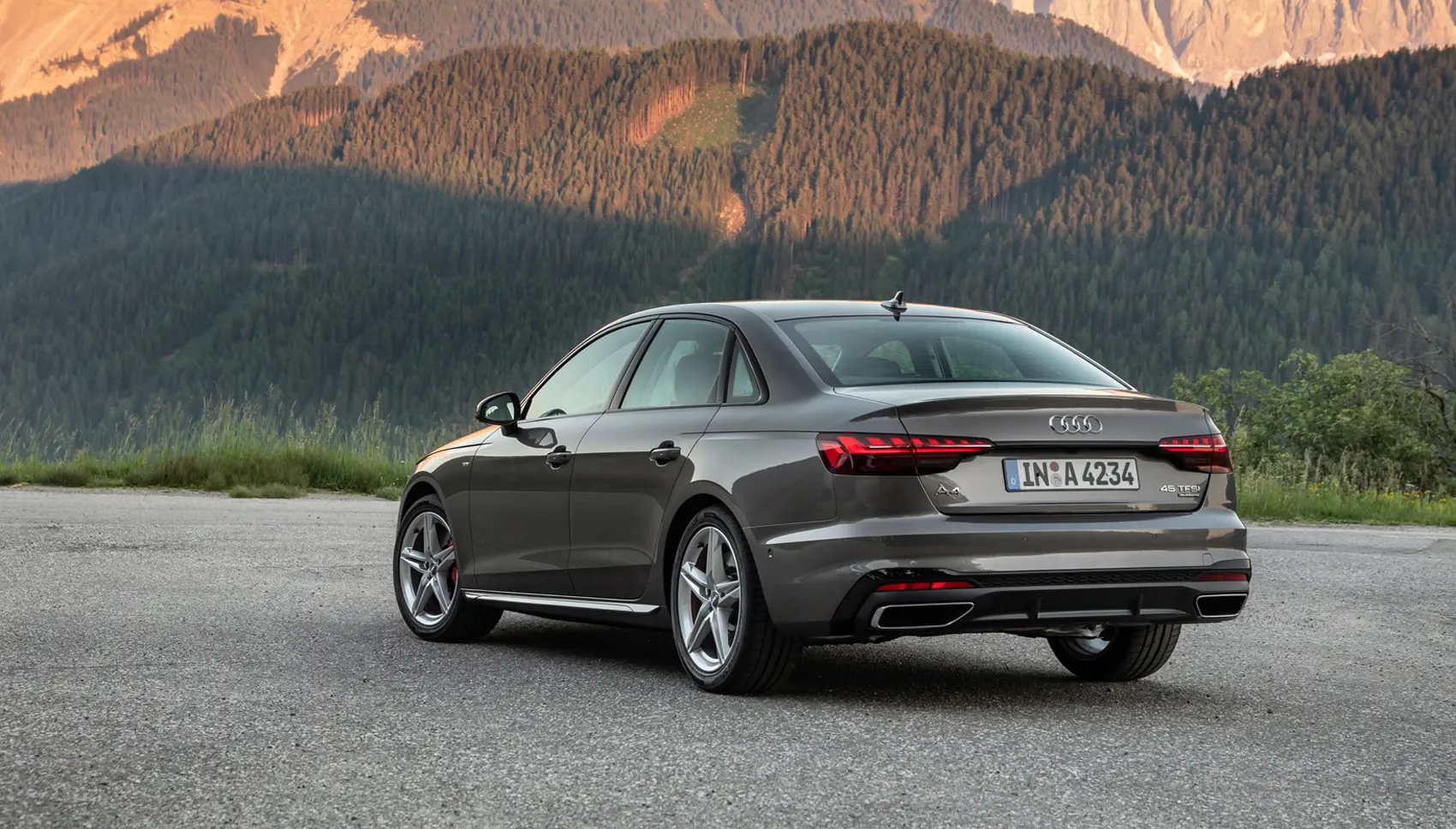
Under the hood, the A4 comes standard with a turbocharged 2.0-liter four-cylinder engine that generates 201 horsepower and 236 pound-feet of torque. Paired with a seven-speed dual-clutch automatic transmission and standard all-wheel drive, the A4 delivers a confident and refined driving experience.
If you’re after a bit more performance, there’s a more potent 261-horsepower version of the same engine, which is a worthwhile step up. Acceleration is respectable with the base engine, hitting 0 to 60 mph in 6.3 seconds, while the upgraded powertrain shaves that down to just 5.2 seconds.
The 2025 Audi A4 returns solid fuel economy ratings for a luxury small sedan. Models equipped with the base engine earn an EPA-estimated 26 mpg in the city and 36 mpg on the highway. Opting for the higher-output turbo-four reduces those figures slightly to 23 mpg city and 32 mpg highway.
Buyers can save an average of $3,009 off the MSRP, which translates to more affordable monthly lease payments. That could mean a monthly savings of around $83 on a 36-month lease.
Inside, the A4 boasts a cabin that lives up to its luxury billing. Premium materials are used throughout, with leather upholstery coming standard and minimal hard plastics in sight.
The A4 seats up to five passengers, offering ample legroom in both rows—particularly accommodating for taller occupants. Still, the rear seat is better suited for two adults rather than three if comfort is a priority.
Trunk space is adequate for its class, with 12 cubic feet of storage. While not standout in terms of volume, the trunk benefits from a wide opening and split-folding rear seats, making it easier to load larger or oddly shaped items when needed.
Lexus GS 350
Unlike the Audi A4, the 2020 Lexus GS 350 represents a classic approach to the luxury sports sedan.
This roomy mid-size four-door, starting at $51,065, features a naturally aspirated V6 engine with no turbocharger for fuel savings and has remained largely unchanged since the current generation launched in 2013. Both of these elements contribute positively to its reliability.
However, the GS offers more than just dependability through its longevity. This rear-wheel-drive-based sedan hails from an era when luxury cars maintained a closer connection to the road, before modern technology began to insulate drivers from the driving experience.
It still delivers a calm, quiet ride, but it also provides a gratifyingly direct response when you turn the wheel. If you’re considering one, now is the time this is the final model year for the GS before Lexus discontinues it.
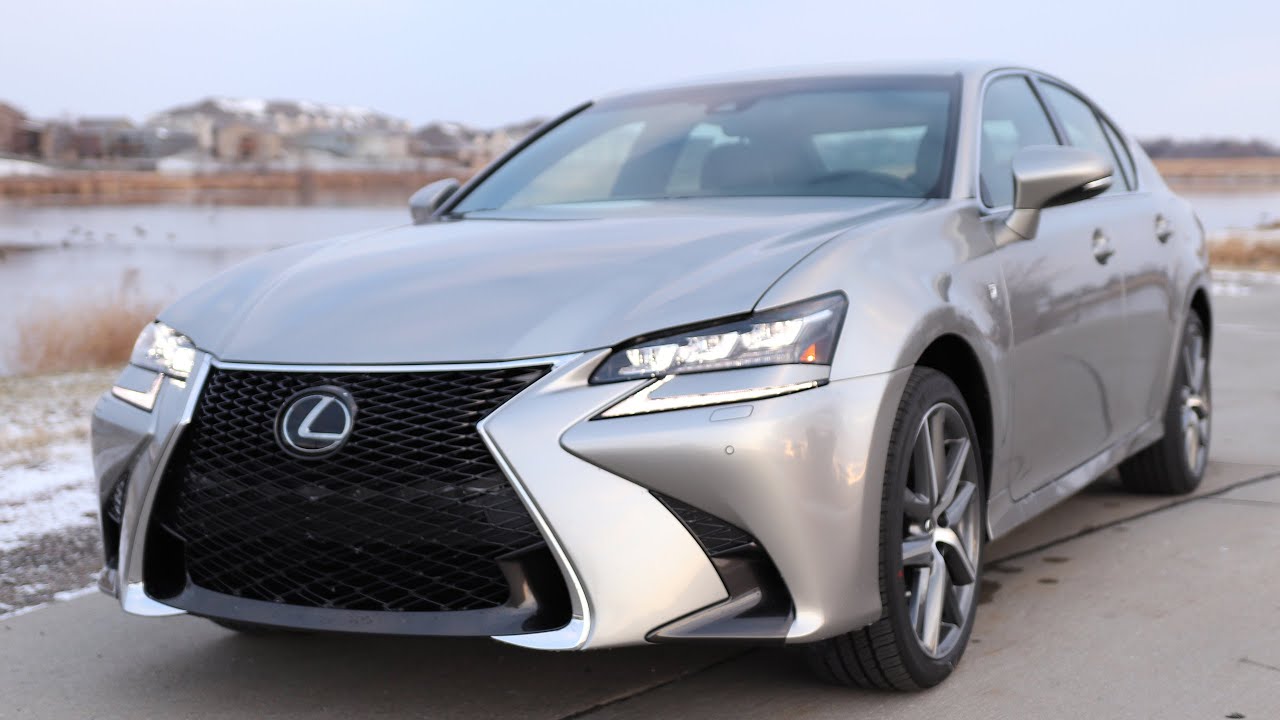
Lexus has long excelled at producing vehicles known for their calm composure and smooth refinement, and that expertise is clearly evident in the 2020 Lexus GS.
This mid-size luxury sedan remains serene and controlled even when navigating rough road conditions, delivering a confident driving experience. It also offers impressive practicality, thanks to a spacious trunk, and includes a generous suite of standard features, particularly in the realm of driver-assistance tech.
For those seeking enhanced driving dynamics, Lexus offers the GS in an F Sport trim, which features a sport-tuned suspension, along with a special celebratory Black Line edition.
In short, the GS is a well-rounded luxury sedan that checks most of the boxes shoppers in this segment are looking for. Notably, this will be the final model year for the GS, as Lexus is discontinuing the lineup.
For 2020, Lexus has dropped the rear-wheel-drive versions of both the GS300 and GS300 F Sport from the lineup.
Interestingly, the all-wheel-drive GS350 is actually less expensive than its rear-wheel-drive counterpart, making it a strong value proposition as the entry point into the GS lineup. It comes packed with standard equipment, making it a compelling choice for many buyers.
The base GS rides on 18-inch wheels and includes exterior features like automatic LED headlights, LED taillights, and heated, power-folding side mirrors with auto-dimming.
Inside, you’ll find amenities such as 10-way power-adjustable front seats, dual-zone automatic climate control, simulated leather upholstery, and a power-adjustable tilt-and-telescoping steering column. On the safety front, standard driver-assistance features include blind-spot monitoring and adaptive cruise control.
Every GS model is powered by a 3.5-liter V6 engine producing 311 horsepower and 280 lb-ft of torque. Both rear-wheel drive and all-wheel drive are available.
AWD models use a six-speed automatic transmission, while RWD versions are paired with an eight-speed automatic. In testing, the GS350 F Sport reached 60 mph in 5.8 seconds—decent for the class, though some competitors are significantly quicker.
For instance, the Audi A6 managed 0–60 in 4.8 seconds, and the BMW 540i xDrive did it in just 4.5 seconds. Still, the GS offers a satisfying driving experience, with a ride that’s smooth but never floaty—ideal for daily commuting. Standard drive modes—Normal, Eco, and Sport—let drivers tailor the car’s behavior to their preferences.
Also Read: 10 Top-Rated Hatchbacks That Drivers Enjoy Driving
Sedans To Avoid Buying
If you’re planning your budget and searching for a new sedan in 2025, you may face some challenges.
Automakers in the U.S. are changing direction and have significantly reduced mass production of sedans. Instead, their attention has largely turned toward crossover SUVs and trucks.
Fiat 500e
The Fiat 500e is a compact, fully electric sedan. With its limited driving range, it’s best suited for individuals living in urban areas who have short daily commutes.
“The 500e would work for someone doing short commutes because its maximum range is under 150 miles. However, it would not work for someone who likes to travel or has a long commute.”
Fiat has a reputation for electronic issues, so if you’re looking for a low-maintenance vehicle, this may not be the ideal choice. The 500e is likely to experience minor problems more often than you’d like and isn’t built for covering long distances.
The Fiat 500e is available with two battery configurations—one offering a range of 115 miles and the other extending up to 199 miles. However, neither option is especially competitive, as most rival electric vehicles comfortably exceed the 200-mile mark in official range tests.

Charging the 500e via a standard three-pin household socket is technically possible, but be prepared to wait all night. A more practical solution is to install a wallbox charger, allowing for AC charging at up to 11kW (or 7.4kW depending on your home’s capability), which can fully charge the battery in under three hours.
For the fastest charging experience, public rapid chargers are the way to go. The Fiat 500 supports charging speeds of up to 85kW. At this rate, the battery can be charged from empty to 80% in just 35 minutes, and you’ll be able to add roughly 30 miles of range in as little as five minutes.
When it comes to performance, the Fiat 500e offers two motor options: a 95-horsepower version that accelerates from 0 to 62 mph in 9.5 seconds, and a more potent 118-horsepower unit that completes the same sprint in nine seconds flat.
While those figures may not seem blisteringly fast, the 500e’s 0–30 mph time of three seconds makes it impressively quick off the line in city driving—quicker than many other compact urban vehicles.
The 500e is also equipped with useful city-friendly safety features, including automatic emergency braking, which can detect pedestrians and cyclists and automatically apply the brakes if a collision is imminent.
Volkswagen Jetta
The Volkswagen Jetta is a budget-friendly, fuel-efficient sedan that offers a spacious interior. However, Car and Driver pointed out that its recent updates aren’t enough to compensate for its aging platform.
“The Jetta is an inexpensive sedan, but the lack of reliability may make you wish you would have spent a bit more money and avoided the hassle”. She also noted recurring issues with oil and transmission fluid leaks, along with potential malfunctions in the power locks.
The Volkswagen Jetta may be getting on in years, but it still holds its ground as a strong contender in the compact family sedan class. It delivers refined European driving characteristics, a spacious interior, and excellent fuel efficiency.
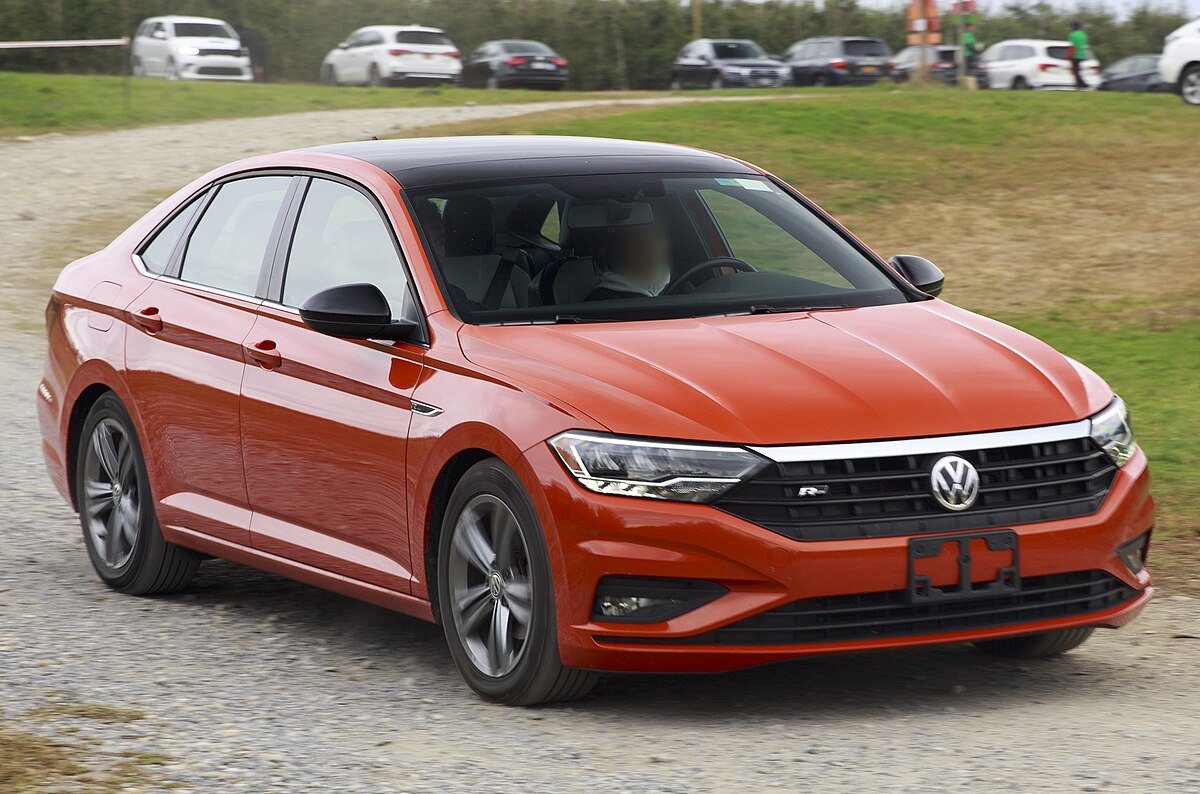
With the 2025 model year, Volkswagen has given the Jetta a refresh to keep it modern and competitive. For those seeking a bit more excitement, the Jetta GLI offers a spirited driving experience while maintaining daily comfort and boasting an impressive roster of standard features.
The Jetta competes in a crowded field of compact sedans vying for consumer attention. Its rivals include the Honda Civic, Toyota Corolla, Mazda3, Hyundai Elantra, as well as performance-oriented models like the Honda Civic Si, Hyundai Elantra N, and Subaru WRX.
The 2025 Jetta is available in five different trim levels in the Canadian market. Pricing ranges from $25,795 to $34,995 MSRP.
The base model, the 1.5 TSI Trendline 8AT Tiptronic, starts at $25,795 CAD and features a 1.5L inline-four gasoline engine. Midway through the lineup is the 1.5 TSI Highline 8AT Tiptronic, priced at $32,195 MSRP.
At the top of the range is the performance-focused 2.0 TSI GLI DSG, which comes in at $34,995 CAD. Freight and PDI (known in some cases as Destination or Delivery charges) are set at $2,050 CAD, though these fees may vary depending on the province and dealership.
Nissan Sentra
The Nissan Sentra features “a loud engine and poor acceleration and not for tall occupants because of a low headliner.”
Musson also emphasized that the Sentra is a no-frills vehicle and lacks the features that might attract buyers. “Thanks to its lack of power, it’s not much fun to drive,” she added.
“The safety package doesn’t include some of the basic features drivers might expect and there have been reports of steering loss in previous model years.”
For over four decades, the Sentra has served as Nissan’s representative in the compact sedan market. Now in its eighth generation—introduced in 2019—the four-door sedan is offered in S, SV, and SR trim levels, all powered by an efficient 149-horsepower, 2.0L 4-cylinder engine.
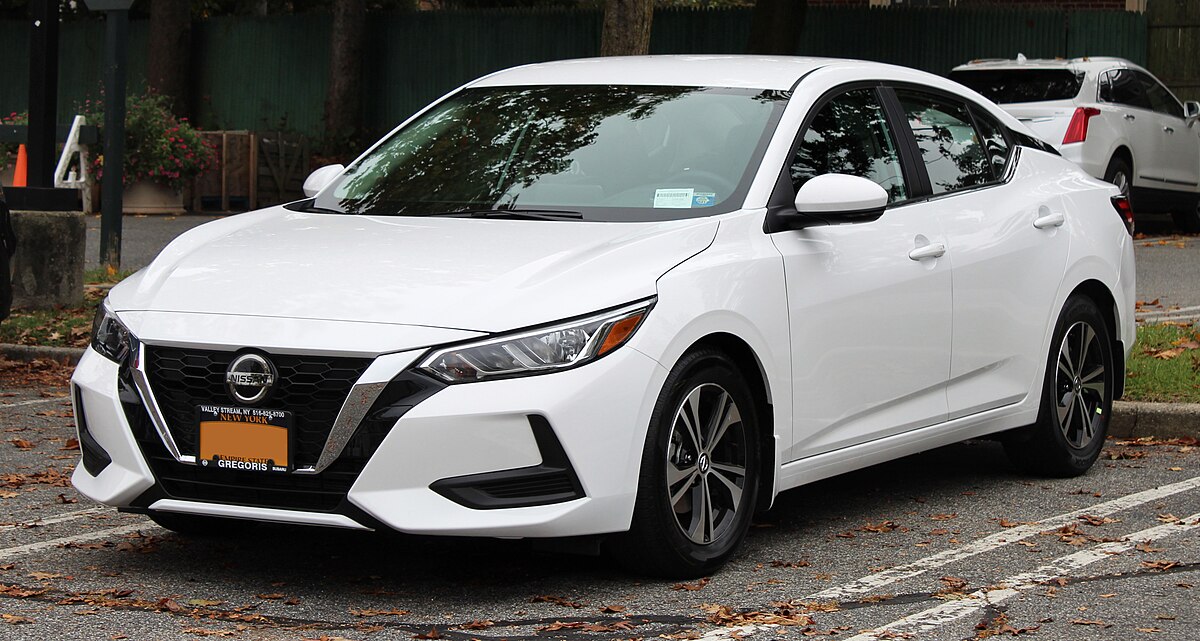
The model underwent a notable update last year, featuring a redesigned front fascia and refreshed headlights across all trims, along with a new rear fascia exclusive to the SR variant.
For 2025, there are no additional changes. An interesting side note for enthusiasts: in Canada, the Sentra has its own dedicated racing series—the Nissan Sentra Cup.
The 2025 Sentra is available in eight trim levels, with Canadian MSRP pricing ranging from $23,898 to $31,148. The base S 6MT model, equipped with a 2.0L inline-four gasoline engine, starts at $23,898 CAD.
A mid-tier option, the SV Moonroof CVT trim, is priced at $27,348 MSRP. At the top of the lineup, the SR Premium CVT model comes in at $31,148 CAD.
Freight and PDI (also known as Destination or Delivery charges) are listed at $1,850 CAD, though this fee may differ depending on the province and dealership.
Nissan Altima
The Nissan Altima is yet another affordable sedan that offers good fuel efficiency, but Joe Giranda, car expert and director of sales and marketing at CFR Classic, pointed out that recent models have not performed well in several important areas.
“On top of that, the interior feels less refined compared to competitors and the driving experience lacks the excitement many buyers are looking for.”Instead, he suggests considering a Honda Accord or Toyota Camry.
Unlike some of its competitors, Nissan continues to support the sedan market. Sitting above the Versa and Sentra in Nissan’s lineup, the Altima remains a stylish, though not flawless, midsize sedan that competes directly with established rivals like the Toyota Camry and Honda Accord.
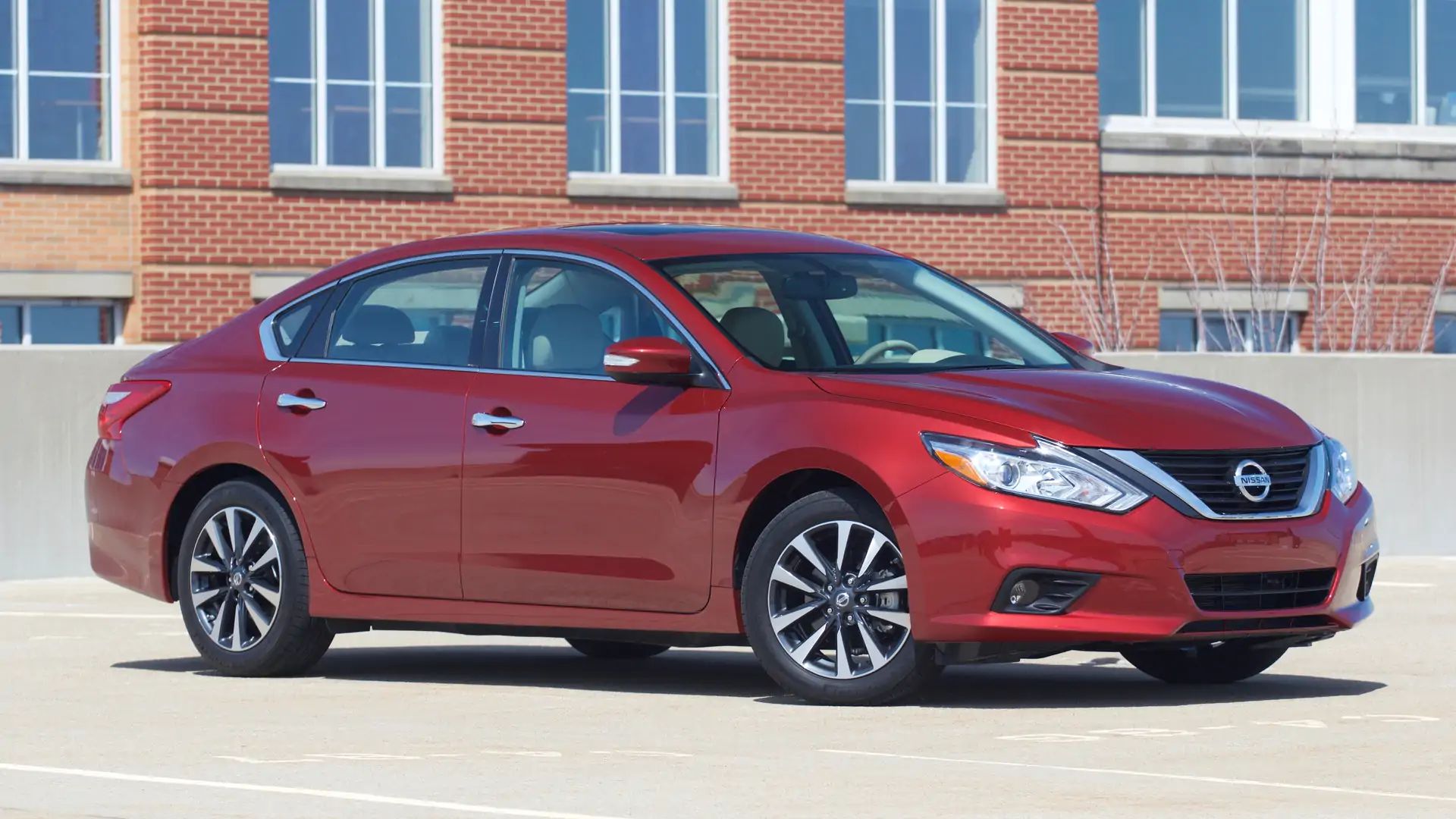
For the 2025 model year, the Altima returns largely unchanged but loses a significant feature: the VC-Turbo engine is no longer available. In its place, Nissan has introduced a new SV Special Edition package.
Despite the improvements made since its 2023 refresh, the Altima still lags behind segment leaders. One of the car’s most persistent weaknesses is its CVT automatic transmission, which delivers slow response times and occasionally inconsistent acceleration surges.
During testing, the brakes performed adequately in a 60-0 mph stop, but the pedal lacked proper feedback. In some street-driving situations, we even experienced odd pedal behavior that felt similar to ABS activation when stopping at signs.
There are, however, some redeeming qualities. The Altima features an updated and upscale design, a solid sense of build quality, and steering that feels sharp and precise.
The infotainment screen is large, which is a plus, but the user interface is outdated, and the rearview camera resolution is noticeably low.
With the discontinuation of the VC-Turbo, Nissan follows a similar path as Honda and Toyota, both of which have also moved away from turbocharged or V6 engines in favor of hybrid technology—something the Altima still lacks. Even though the Altima is competitively priced, it struggles to keep pace with better-rounded and more refined alternatives.
The 2025 Altima is available in five trim levels: S, SV, SV Special Edition, SR, and SL. Pricing for the base model with front-wheel drive starts just above $28,000, while the top-tier trim with available all-wheel drive climbs to around $36,000.
Also Read: Top 10 Worst and 10 Best Trucks for Towing
Chevrolet Malibu
The Chevrolet Malibu is a stylish mid-size family sedan with respectable fuel economy, but Giranda pointed out that it is beginning to show signs of aging.
“The design feels outdated and the base engine struggles to deliver enough power for a smooth ride. The interior is also behind the times, lacking the tech and features that many buyers expect in 2025,” Giranda explained.
Chevrolet is shifting its focus toward SUVs and electric vehicles, and Giranda believes the Malibu is unlikely to receive significant updates, which could negatively impact its resale value. “If you’re looking for something modern and reliable, there are better options out there,” he said.
Unlike some of its competitors, Nissan continues to support the sedan market. Sitting above the Versa and Sentra in Nissan’s lineup, the Altima remains a stylish, though not flawless, midsize sedan that competes directly with established rivals like the Toyota Camry and Honda Accord.
For the 2025 model year, the Altima returns largely unchanged but loses a significant feature: the VC-Turbo engine is no longer available. In its place, Nissan has introduced a new SV Special Edition package.
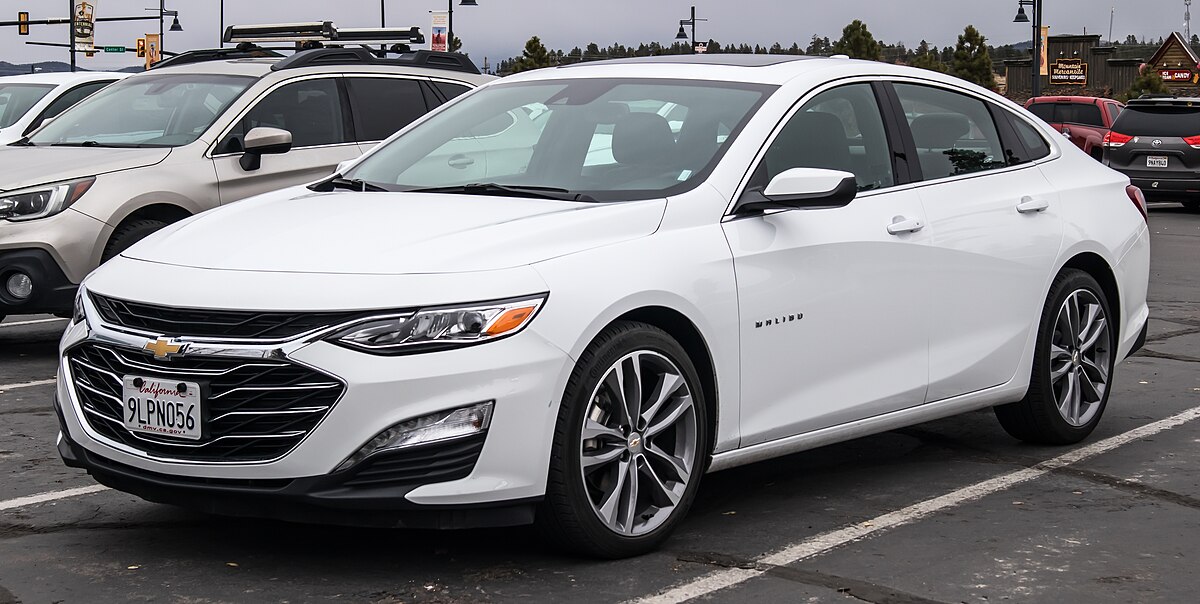
Despite the improvements made since its 2023 refresh, the Altima still lags behind segment leaders. One of the car’s most persistent weaknesses is its CVT automatic transmission, which delivers slow response times and occasionally inconsistent acceleration surges.
During testing, the brakes performed adequately in a 60-0 mph stop, but the pedal lacked proper feedback. In some street-driving situations, we even experienced odd pedal behavior that felt similar to ABS activation when stopping at signs.
There are, however, some redeeming qualities. The Altima features an updated and upscale design, a solid sense of build quality, and steering that feels sharp and precise.
The infotainment screen is large, which is a plus, but the user interface is outdated, and the rearview camera resolution is noticeably low.
With the discontinuation of the VC-Turbo, Nissan follows a similar path as Honda and Toyota, both of which have also moved away from turbocharged or V6 engines in favor of hybrid technology—something the Altima still lacks. Even though the Altima is competitively priced, it struggles to keep pace with better-rounded and more refined alternatives.
The 2025 Altima is available in five trim levels: S, SV, SV Special Edition, SR, and SL. Pricing for the base model with front-wheel drive starts just above $28,000, while the top-tier trim with available all-wheel drive climbs to around $36,000.

